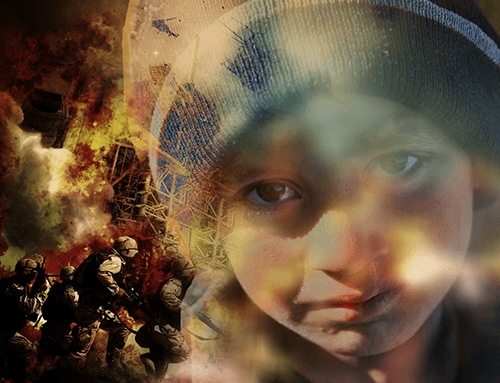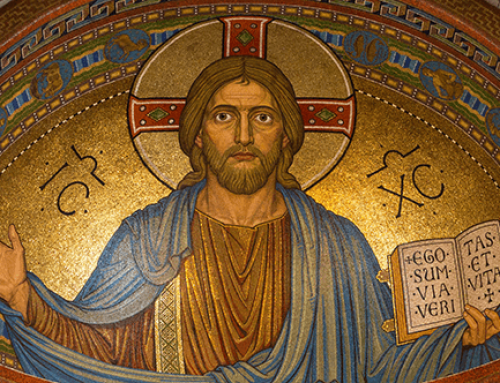 Humanity has problems with the justice of God. On the one hand, people complain when God does not act, when evil appears to go unpunished and innocents suffer. On the other hand, people fear God’s strict standard of judgment.
Humanity has problems with the justice of God. On the one hand, people complain when God does not act, when evil appears to go unpunished and innocents suffer. On the other hand, people fear God’s strict standard of judgment.
God is just, and as in all things, God’s justice is perfect and complete. His judgments are right and good. The real issue is that sin is a bigger problem than we like to admit. Sin is like a cancer that seeps into every crevice and begins to systematically kill off all that is good. The solution is to eradicate the sin. And that, in brief, is the end goal of God’s plan of salvation: to bring about justice, righteousness and holiness by eradicating every trace of sin and resulting death.
Let me share with you two passages of Scripture which, for me, shed light on the way God deals with the problem of executing justice in the face of sin. The first is in Micah chapters 6-7. In these chapters, the Lord lays out His complaints against the people as a prosecuting lawyer would plead his case before a court:
“Listen, you mountains, to the indictment of the Lord,
And you enduring foundations of the earth,
Because the Lord has a case against His people;
Even with Israel He will dispute.” (Micah 6:2)
The prophet goes on to recount the injustice and sin of the people that has gone unpunished. In chapter seven, Micah speaks for himself and, I believe, on behalf of all who look to God to provide a way of salvation: “I will watch expectantly for the Lord; I will wait for the God of my salvation. My God will hear me.” (Micah 7:7). Then he makes an astonishing and wonderful statement:
I will bear the indignation of the Lord
Because I have sinned against Him,
Until He pleads my case and executes justice for me.
He will bring me out to the light,
And I will see His righteousness. (Micah 7:9)
I love the image this verse presents. God is the plaintiff, the injured party. As we have already seen, God also stands in the role of the prosecutor, bringing an indictment against us. We rightly stand accused. We bear His indignation because we have surely sinned against Him. But who will defend us? Who stands in the role of lawyer for the defense? God Himself pleads our case! (see also Romans 8:26-27, 34). Who sits in the seat of Judge? Who executes justice for me? God the righteous Judge! He brings me out into the light and I will see His righteousness, because God sent His own dear Son to take upon Himself the punishment for my sins (Isaiah 53:4-6, Rom. 3:23-25, John 3:16-17). What an amazing, awesome God!
But what about executing justice in the world? What about the poor and oppressed? What about those who suffer indignity and abuse at the hands of evildoers? Yes, justice will be served in eternity, but what about now? Does God have a plan for dealing with injustice on earth?
Yes, He does. There are times when God says, “It is enough!” and steps in to bring judgment upon people. We can read in the Old Testament several accounts where God brought judgment, and His judgments were devastating. But those instances always came as a last resort, when His every attempt to bring repentance and forgiveness have failed because of the hardness of people’s hearts.
Most of the time, God’s means of bringing justice in this life is not to intervene directly, but to work through people. The words of the prophet Ezekiel give us a glimpse into the heart of God when it comes to carrying out justice against rebellious people. In Ezekiel chapter 22, the Lord once again brings an indictment against His rebellious people:
“Her priests have done violence to My law… Her princes within her are like wolves tearing the prey, by shedding blood and destroying lives in order to get dishonest gain. Her prophets have smeared whitewash for them, seeing false visions and divining lies for them, saying, ‘Thus says the Lord God,’ when the Lord has not spoken. The people of the land have practiced oppression and committed robbery, and they have wronged the poor and needy and have oppressed the sojourner without justice.” (Ezek. 22:26-29)
What is God’s response to such great injustice? Does He rush in to bring swift judgment? No. The Lord says,
I searched for a man among them who would build up the wall and stand in the gap before Me for the land, so that I would not destroy it; but I found no one. (Ezek. 22:30)
Because He could find no one who would take a stand, because He could find no one through whom He could bring about righteousness and justice in the land, He poured out judgment. God searches for men and women who will act in His name on behalf of the poor and oppressed and needy, for someone who will welcome the stranger, clothe the naked, visit those sick and in prison, feed the hungry and give a cup of cold water to the thirsty (Matt. 25:34-40).
He has told you, O man, what is good;
And what does the Lord require of you
But to do justice, to love kindness,
And to walk humbly with your God? (Mic. 6:8)
God’s preferred means of executing justice in the world is through people who are willing to deny their own agendas, their own selfish interests, and follow Him (Luke 9:23). For those who are willing to be His hands and feet in the world, the path must always begin with prayer and learning His nature and His ways. And it always includes intercessory prayer on behalf of those who need His grace and help.
Pastor Cindy
From the Series: Nature of God





Very good read. God is the plaintiff AND the prosecutor…very interesting. This could be confusing, but not when God is given both of those titles. And, I liked the part about being His hands and feet. Hermann wants to help others, and he is my husband. This makes me wonder how God will direct our future for His Kingdom.
Not only plaintiff and prosecutor, but also attorney for the defense and judge! I love it.
We get too caught up in the “that’s not fair” of our situation & forgot to pray & ask God’s direction in times of trouble. Why do we do that? Selfishness? Pride?